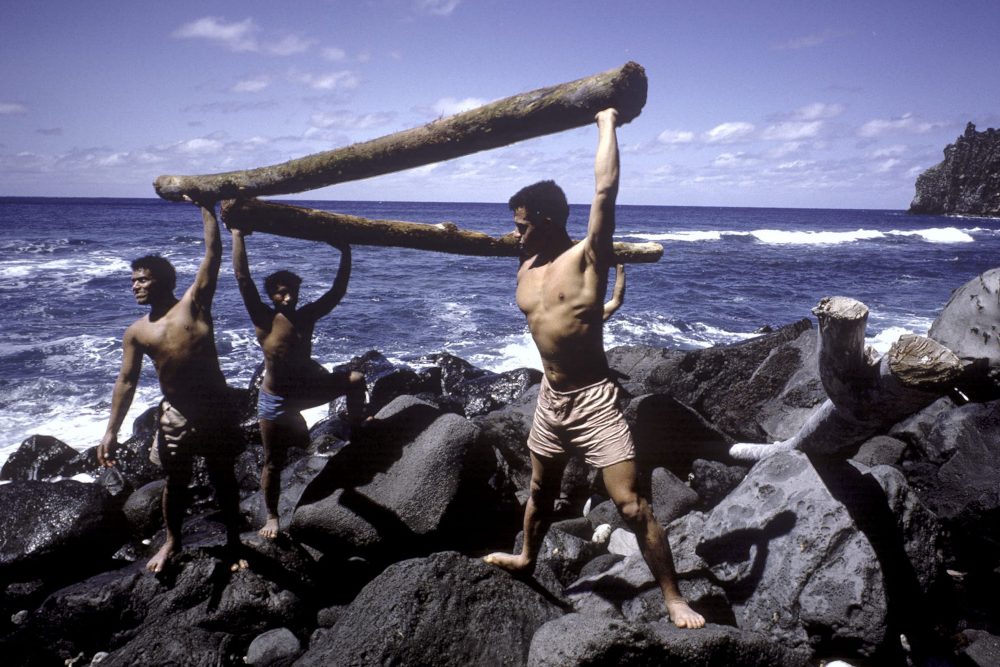A Dutch author gave the internet something to smile about over the weekend, after recounting the real-life tale of six schoolboys who survived for over a year as castaways on a desert island, without turning on each like the boys in the novel, Lord of the Flies.

William Golding’s Lord of the Flies, published in 1951, told the fictional tale of a group of schoolboys who devolved into murderous savagery after they were marooned on a deserted island.
For those who haven’t read it, the basic lesson is that humans suck, and they will turn on each other when things get desperate.
Dutch author Rutger Bregman offered a brighter take on humanity with his account of a real-life castaway incident from 1965, which he described on Saturday in The Guardian. The account is an excerpt taken from his book, Humankind, and is based on news reports and interviews with one of the boys, as well as with the captain who rescued them.
The largely uncelebrated tale started in Tonga in 1965, Bregman writes. Six boys between the ages of 13 and 16 decided to skip school and sail from Tonga to Fiji on a “borrowed” fisherman’s boat. They stocked the boat with food and supplies but fell asleep on their first night at sea. When they awoke, their ship had been damaged by the waves and they were left adrift for several days.
Finally, the boys washed up on a rocky, uninhabited island, where they managed to survive for an estimated 15 months.
Australian Capt. Peter Warner ultimately found the boys after spotting a fire while sailing near the island in 1966.
Warner told Bregman about the shock he felt when a naked, long-haired child showed up on the shore to greet him.
“My name is Stephen,” the boy said, according to Bregman’s story. “There are six of us here and we reckon we’ve been here 15 months.”
Rather than descending into tribal warfare over limited resources, the boys had managed to put together a pretty good life on the island.
“The boys had set up a small commune with (a) food garden, hollowed-out tree trunks to store rainwater, a gymnasium with curious weights, a badminton court, chicken pens and a permanent fire,” Warner wrote in his memoirs. The boys had also put together a guitar made out of driftwood and a coconut shell.
The boys had survived the early days of their shipwrecked ordeal by eating fish, coconuts and birds, but their lives got better when they eventually climbed to the top of a rocky cliff on the island. That’s where they found the remains of an abandoned settlement around a volcanic crater, as well as seeds, bananas and chickens descended from the former inhabitants’ farms.

Get daily National news
The schoolboys said they got through the ordeal by laying out a few ground rules. They worked in pairs, issued time-outs to avoid fights and held regular song and prayer sessions at the beginning and end of the day.
Warner said they were in very good health when he found them and brought them home. However, they were thrown in jail upon their return to Tonga for stealing the boat they used in the journey, as shown in a newspaper report from the time.
Warner ultimately helped the boys get out of jail by securing the documentary rights to their story, on the condition that they be released to act out the film themselves.
Bregman isn’t the first person to tell the boys’ story, nor is this the first time he’s brought it up. However, the tale seemed to strike a nerve on social media, where many users said they felt like castaways in their own homes due to coronavirus lockdowns around the world.
The boys didn’t know it at the time but the island, ‘Ata, was inhabited until disease and slave raids drove its entire population to leave. It remains uninhabited to this day.
Warner ultimately hired the boys as crew on board a new ship, which he called the Ata.
Five decades later, Warner and one of the boys, Mano, remain good friends, according to Bregman.
The Dutch historian says he’s not surprised the story went viral because it’s a more positive take on Lord of the Flies, a tale that many high school students are forced to read at some point.
“The Real Lord of the Flies is a story of human friendship and resilience,” Bregman wrote on Twitter. “A story about how much we can accomplish if we work together.”









Comments
Want to discuss? Please read our Commenting Policy first.